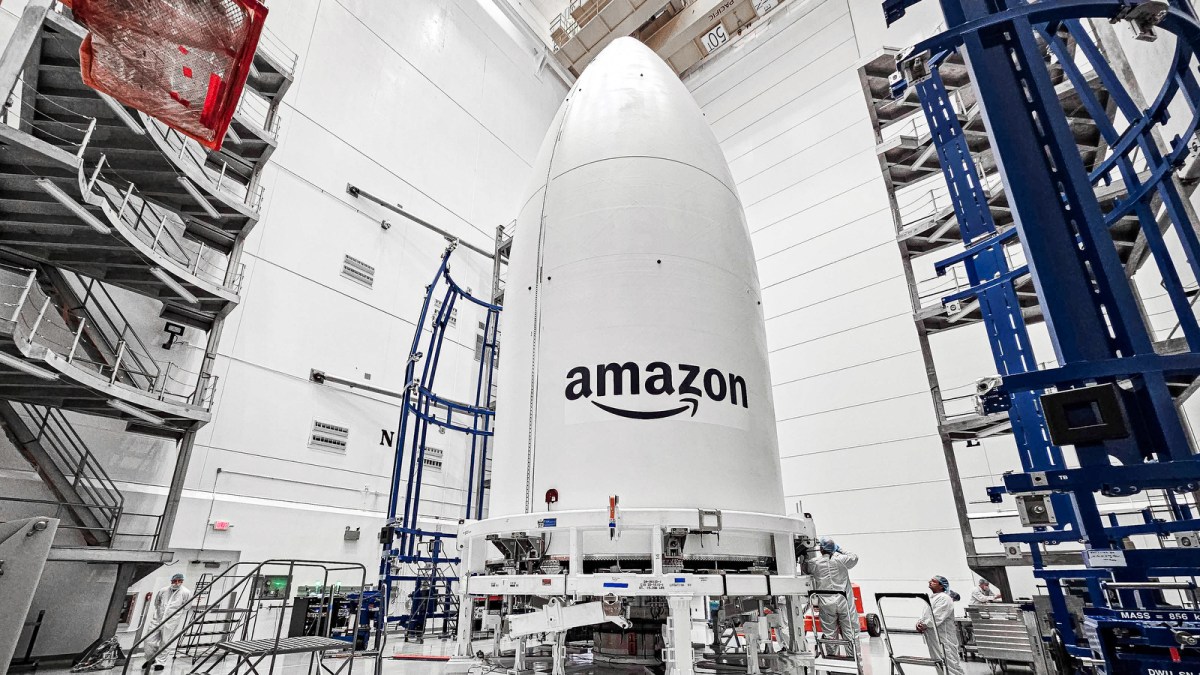How satellites are pushing security innovation at Amazon

Whether it’s selling books, delivering groceries, broadcasting professional football games, or providing countless organizations with IT infrastructure, it’s imperative for Amazon to provide world-class security for its hundreds of millions of customers. But the company has realized the tech used to supply that security can only take it so far.
Executives for the company say that security being baked into the company’s culture helps drive innovation, with security engineers embedded in the development process from day one. Amazon created this structure so security doesn’t become an afterthought, impeding progress in company initiatives or pushing products into the marketplace that are riddled with vulnerabilities.
“Security is not a bolt-on when you do culture correctly in an organization,” Steve Schmidt, Amazon’s chief security officer, told CyberScoop. “One of the biggest problems with security organizations is they slow down companies. But if a security engineer [is] embedded in a development team, it means the cycle time for questions and answers is super short. It means that the security engineer is there to see how people are thinking about approaching problems, about where they’re going with information, and it allows them to say, ‘Hey, instead of doing this, do you think about doing that?’ It’s going to result in something down the road that’s easier to support [and] that’s more secure.”
One particular program where security is driving innovation is Project Kuiper, which will consist of a low-Earth orbit (LEO) satellite constellation that Amazon says will provide affordable, high-speed internet around the world, particularly where terrestrial, fiber-based internet is hard to reach. The service will launch more than 3,000 satellites that offer low latency and high-speed connectivity, providing connections between 100 Mbps and 400 Mbps via customer terminals when it’s available in 2025.
Given the extreme sensitivity of satellite-based internet, Amazon has spent a considerable amount of time implementing security into the devices it will eventually put in orbit. Teams of hardware and software security experts have worked alongside aerospace engineers on proprietary devices, ensuring encryption, key management and embedded systems are as secure as possible. Other teams have worked on more granular measures, including hardware roots of trust, end-to-end data encryption using AES-256, and key exchanges using Sigma protocols.
The past few years have shown the cybersecurity threats to satellite-based internet services are real. In 2022, Russian-linked threat actors crippled Viasat’s satellite communications on the eve of the country’s invasion of Ukraine. Other research has shown that cheap tools can be used to gain access to Starlink, a similar satellite-based internet service owned by SpaceX.
Amy Herzog, Amazon’s CISO for ads and devices, said all of the important security work being done now is to avoid having customers have to deal with connectivity problems, whether it is from a hack or something else entirely.
“Our customers expect that when they turn it on, they’re going to get a seamless and secure experience that they don’t need to think about, or make too many choices about, or have a security person’s knowledge to do correctly,” she told CyberScoop.
Herzog says the security work on Kuiper is similar to what goes on behind the scenes for all of Amazon’s devices, from the Echo smart speaker to Ring doorbell cameras to Fire tablets.
Project Kuiper satellites “may be bleeding edge, but we approach it the same way that we approach devices, or the cloud, or any other thing,” Herzog said. “Which is to think about, ‘Hey, who’s using this? What do they care about? What’s the threat landscape?’ Let’s figure out how we make sure that we build in the [security] controls from the [start of] design.”
The synergy is something Schmidt believes could help enterprises avoid the “really unfortunate outcomes” when security is deprioritized or siloed from other lines of business.
“We cannot afford to have that happen,” Schmidt said. “Our customers depend on us for their mission critical data. They depend on us to operate their businesses. They depend on us to store the most important things that they have. If we get that wrong, it’s really not a good thing.”



